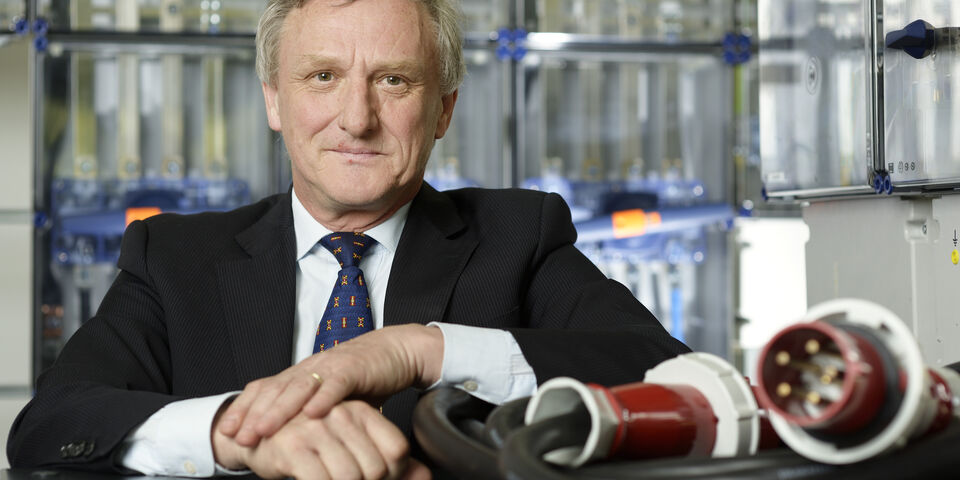Is an all-encompassing energy agreement feasible for the Netherlands?
The SER (Social and Economic Council of the Netherlands) wants to draw up an energy agreement for sustainable growth, which should include binding arrangements concerning energy saving, clean energy technologies, and climate policy. Marcel Galjee and Hans Schoolderman, two consultants at PwC, researched the possibilities and concluded in newspaper FD that an ‘Energiewende’ like in Germany, a country that wants to phase out all nuclear energy eventually, is unfeasible in the Netherlands. So then what do we do?
“By 2020, the European Union wants the Netherlands to get fourteen percent of their energy from renewable energy sources. The government raised that number to 16. For the generation of electricity, that means 42 percent of the total should be renewable. Currently, it’s only 10 percent”, says Wil Kling, who’s been a fulltime professor at Electrical Engineering for the past five years, and worked at national electricity transmission operator TenneT in the ten years before that. “In order to meet that goal, we’ll have to do serious investments in the years to come. The share of renewable energy in the Netherlands is currently only 4.5 percent. To make sure electricity systems reach that sixteen percent, and remain stable and reliable at the same time, Energie-Nederland (representative of power companies) estimates we need 38 billion euro.”
It’s an astronomical sum of money, especially in these financially dire times. “As a scientist, I don’t focus on the economic situation, but on whether or not it’s technically feasible to arrange a system using the specific characteristics of those renewable sources. The high investments are the result of the fickle nature of sun and wind, requiring backup systems and networks that can help out during peaks in energy consumption. It’s something we’re researching a lot right now: couldn’t this be more efficient, using smart grids, more control, more financial incentives, etc.”
“Network stability and supply guarantees are important aspects, too, aspects that electricity transmission operators and producers and suppliers of energy debate about. When there’s no wind – and half the time there isn’t any – or when the sun doesn’t shine, the operator wants a backup plan. In case of strong winds and bright sunny days, conventional power stations have to be able to switch back. Right now, the Netherlands are faced with major overcapacity, but the operators don’t like energy producers closing gas or coal plants, because that would be detrimental to supply guarantees and stability. In turn, producers feel the government should compensate them for keeping those plants up and running. This financial jousting between these companies and the government has been going on for several years now. But it’s a global discussion, really.”
One thing Kling is genuinely excited about, are ‘energy cooperations’. “These are groups of individuals and companies that want to produce their own energy, either for mutual exchange or to offer to others. You could say they’re modern-day versions of antennae associations. But because all these households own their own homes, the government isn’t ready to OK their plans just like that. They probably fear losing tax money. For now, only companies located at industrial areas, or institutions like TU/e are allowed to. I expect the law to be adjusted within five years. I think by then, there’s a distributed solution with local incentives to control supply and demand, something a country like Germany doesn’t fuss about as much, for example. But even then a reliable transportation and distribution network will be necessary.”


Discussion